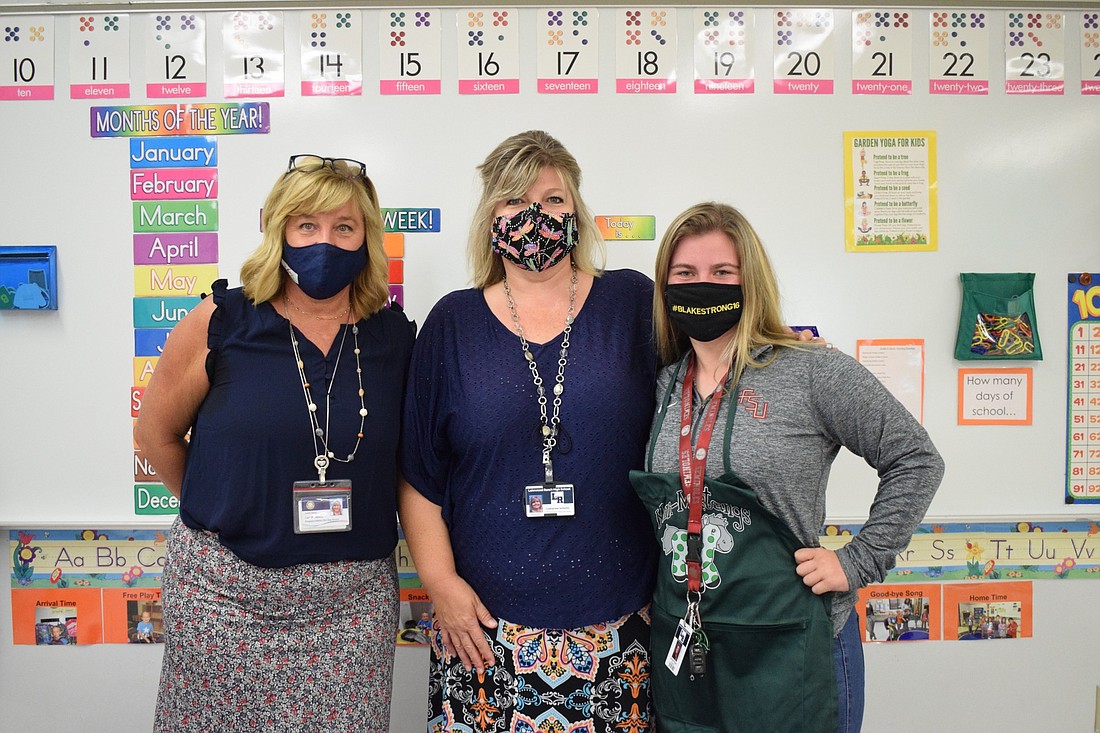- April 23, 2025
-
-
Loading

Loading

Brooke Rypel, a senior at Lakewood Ranch High School, was disappointed at the beginning of the school year to find out she wouldn’t be part of the Mini Mustangs program this semester.
Mini Mustangs is a pre-K program at Lakewood Ranch High School in which about 200 Lakewood Ranch High students work with the pre-K students and other pre-K programs in the area to obtain a Child Development Associate credential.
“I’ve been doing it for three years and was looking forward to finally being able to get it done my fourth year, and then it was just upsetting to know that it wasn’t going to happen at first,” Rypel said.
Now after taking the semester off due to COVID-19, Mini Mustangs will be back in January with some changes.
This is the first year since the Mini Mustangs program began in 2000 that it will begin in the middle of the school year.
To qualify for funding for free pre-K programming from the state, Mini Mustangs must offer 540 hours of free education per year. That breaks down to about three hours of free programming per day, and parents can choose to have their children stay the rest of the day for an added fee of $275 per month.
Cari Whiddon, the voluntary pre-K manager for the School District of Manatee County, said starting Mini Mustangs in January gives the program an opportunity to provide a full day, which is six hours, of free pre-K education to the community.
The free full-day program is not a permanent change. Once the 2021-2022 school year starts, Mini Mustangs will return to providing three free hours of education and allowing children to stay for the day for an added fee.
Pre-K students must be 4 years old by Sept. 1 of the academic year and reside in Florida, and their families must have a voluntary pre-K voucher or certificate of eligibility to participate in any voluntary pre-K program.
Whiddon said Mini Mustangs didn’t start in August because of the pandemic.
“We had several families that were a little bit leery about sending their child in August when we didn’t know as much as we know about COVID-19,” Whiddon said. “Now we’re starting to get phone calls. I had families that were actually in tears when they found out we had decided not to offer this program at Lakewood Ranch [High School].”
Normally, the pre-K class has 20 students, but Whiddon wants to keep the class size at about 12 students to better follow Centers for Disease Control and Prevention guidelines. If there is a high demand for the program, allowing more students will be taken under consideration.
Catherine Schutte, the pre-K teacher for Mini Mustangs, can’t wait to have kids back in her classroom.
“[Early childhood education is] my life’s work,” Schutte said. “It’s in my heart. I was moved to the media center while we were waiting to hear if the program was going to come back. While I did like it, I missed the kids, I missed the interaction, I missed the free hugs. I miss knowing that you’re doing something for them, for the big kids and the little kids. There’s so many different families we help, and you become part of their lives.”
While in class, students will wear masks and follow CDC guidelines including social distancing and washing their hands often. Schutte said each student will be provided an individual playing tub, so no equipment is shared. The class will also have dividers on the tables and alternative seating options.
The full-day program also gives Lakewood Ranch High School students an opportunity to catch up on the hours they missed from this semester, so they are able to get their Child Development Associate credential. The credential is a stepping stone for students who wish to pursue a career in early childhood education.
Due to the pandemic, the high school students aren’t able to obtain hours by working with local elementary school pre-K classes.
“It’s important we give the high school students the opportunity to work with those children and get those hours,” Whiddon said. “Otherwise, they don’t get the industry certification, and that defeats the whole purpose of the program. We want them to be ready to go out into the workforce. We want them trained.”